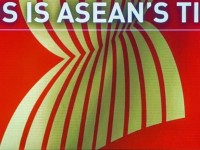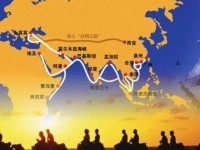Lucio Blanco Pitlo III, President of Philippine Association for Chinese Studies, and Research Fellow at Asia-Pacific Pathways to Progress Foundation
Mar 09, 2016
With its thriving economy, accelerating integration and evolving challenges to the security environment, ASEAN is destined to become an increasingly important region of the world. Its population is bigger than the combined population of the U.S. and Japan, and it represents a major frontier market.

He Yafei, Former Vice Minister of Foreign Affairs
Mar 07, 2016
For Southeast and East Asia to have a favorable architecture, wherein all nations could aspire to common development and prosperity, it is necessary for both the U.S. and China to work closely with each other and with ASEAN.
Zhou Bo, Senior Fellow, Center for International Security and Strategy, Tsinghua University
Nov 24, 2015
Washington’s move to politicize this meeting simply reflects the growing frustration of a US that doesn’t know how to deal with China. This time it has taken a wrong approach to confront China at the wrong occasion. The result was not helpful in improving relations among the countries concerned.
Zha Daojiong, Professor, Peking University
Oct 28, 2015
Since the first China-Asean official dialogue in July 1991, when then foreign minister Qian Qichen attended the 24th Asean Post-Ministerial Conference as a consultative partner, the relationship between China and the Association of Southeast Asian Nations has grown into a multilayered web of ties.
Zhou Bo, Senior Fellow, Center for International Security and Strategy, Tsinghua University
Aug 20, 2015
Beyond search-and-rescue cooperation and crisis management, creating hotlines between China and the 10 ASEAN countries would carry a no less important symbolism: the consensus that the South China Sea issue is not an issue between them as a whole.
Chen Xiangyang, Director and Research Professor, CICIR
Jun 15, 2015
In its eagerness to reassert its supremacy in the Asia Pacific, Washington risks losing its balance amid competing strategic goals, by forcing a position that is neither fair nor legally supportable in a region far from its shores.
Su Xiaohui, Deputy Director of Int'l & Strategic Studies, CIIS
May 26, 2015
The maritime issue casts a dark shadow on the cooperation between the two countries in the wake of tenser contests in the South China Sea. It is time to prevent this difference from dominating the bilateral relationship.
Lucio Blanco Pitlo III, President of Philippine Association for Chinese Studies, and Research Fellow at Asia-Pacific Pathways to Progress Foundation
Apr 24, 2015
The Philippines is seeing a year of impressive economic growth (at 6.3%) despite the lacking foreign direct investment due to woeful infrastructure constraints. The AIIB can be an additional source of funding for local infrastructure projects. Political disputes surrounding the China Sea disputes were not enough to trump the economic importance of this cooperation.
Zhou Bo, Senior Fellow, Center for International Security and Strategy, Tsinghua University
Apr 21, 2015
China’s growing involvement in Sri Lanka and South Asia, drew Prime Minister Narendha Modi to visit Sri Lanka, the first for an Indian PM in 27 years. India’s utmost concern is security with China’s so-called “string of pearls” strategy, which though coined by a U.S. defense contractor, suspects China of building naval bases in the Indian Ocean. To ease tension, the two countries must accommodate each other’s maritime interests.

Feb 04, 2015
China's rig HYSY 981 can be considered part of China’s Maritime Silk Road strategy – an attempt to strengthen relationships with ASEAN nations through economic opportunity. But as HYSY 981’s deployment drew controversy in the past, it should instead focus on resource development in less controversial waters for the time being.
Back to Top

- China-US Focus builds trust and understanding between the U.S. and China through open dialogue among thought leaders.
- Our Offerings
- Topics
- Videos
- Podcasts
- Columnists
- Research Reports
- Focus Digest
- Stay Connected
-
Thanks for signing up!
- Get the latest stories from China-US Focus weekly.